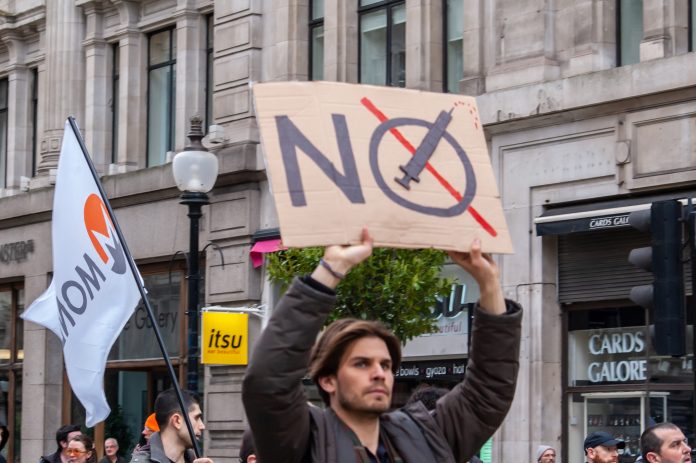A study by Annenberg Public Policy Center (APPC) researchers has found that users of conservative and social media are more likely to believe COVID-19 conspiracy theories
During the early months of the COVID-19 outbreak in the U.S., people who regularly used conservative or social media were more likely to report believing in conspiracies, according to a study by researchers at the Annenberg Public Policy Center (APPC).
The researchers conducted an Annenberg Science Knowledge (ASK) survey using a national U.S. probability sample in March 2020 and again in July 2020 with the same group of 840 adults.
The respondents were asked about three conspiracy beliefs, media use, steps taken to prevent the spread of the virus, and their intentions to be vaccinated, among other things.
- 17% of U.S. adults reported believing that “the pharmaceutical industry created the coronavirus to increase sales of its drugs and vaccines,” up from 15% in March;
- 32% reported believing that some in the Centers for Disease Control and Prevention (CDC) “are exaggerating the danger posed by the coronavirus to damage the Trump presidency,” up from 24% in March; and
- 38% reported believing that “the coronavirus was created by the Chinese government as a biological weapon,” up from 28% in March.
- From March to July 2020, conservative media users’ belief that the pharmaceutical industry created the virus rose from 13% to 28%, and that some in the CDC were exaggerating the danger of the virus to damage the Trump presidency went from 34% to 61%.
Anti-vaccine
These increases in conspiracy beliefs were associated with less mask-wearing and decreased intentions to get a vaccine when it became available.
“The media played a role in the promotion or reduction of conspiracy beliefs,” said Dan Romer, research director of the Annenberg Public Policy Center of the University of Pennsylvania, who co-authored the study with APPC Director Kathleen Hall Jamieson.
“There were media sources that hindered the ability of the country to confront the pandemic.”
“The major social media platforms are playing Whac-A-Mole with COVID conspiracy purveyors,” Jamieson said. “Block their imaginings in one place and they reappear in another.”
Mask wearing
Romer added: “When mainstream news treats conspiracy theories, it is to raise concerns about the effects of accepting them, not to legitimise them.
“People who get a lot of information from mainstream TV news were also more likely to want to be vaccinated and were more likely to wear masks, but that wasn’t related to whether or not they believed in conspiracies. It operated independently.”
Media
The researchers suggested that the findings “point to the need for greater efforts on the part of commentators, reporters, and guests on conservative media to report verifiable information about the pandemic. The results also suggest that social media platforms need to be more aggressive in downgrading, blocking, and counteracting claims about COVID-19 vaccines, claims about mask-wearing, and conspiracy beliefs that have been judged problematic by public health authorities.”
At the same time, the researchers said, public health authorities seeking to prevent the spread of the virus “should seek opportunities to present accurate information about the pandemic to users” of conservative and social media. Reaching users of mainstream news media is also important because they were “either less likely to subscribe to conspiracy beliefs (in the case of print) or more likely to adopt protective behaviour (in the case of broadcast television news).”
The full study has been published in the Journal of Medical Internet Research.











